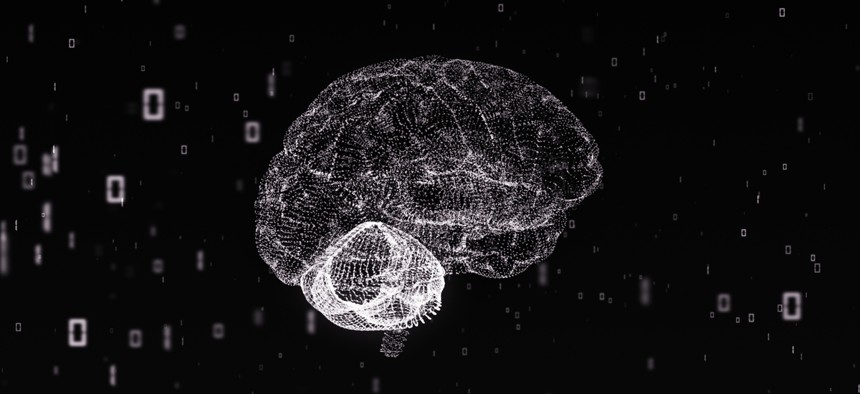Energy Explores the Potential of an Artificial Intelligence Grand Challenge

Wangbar/Shutterstock.com
The department’s new AI-focused office highlighted its intent to “push the frontiers” of AI development.
The Energy Department’s nascent Artificial Intelligence and Technology Office—or AITO—on Wednesday invited experts from national laboratories, academia, industry and beyond to weigh in on sector-specific grand challenges and partnerships worth pursuing to pioneer radical breakthroughs in AI and bolster U.S. leadership in the tech’s realm.
In the office’s first request for information, AITO officials asked outside organizations to share insights on how to best approach the production of AI-focused grand challenges, and details on the AI capabilities that hold the most potential to disrupt the landscape and power new—and needed—discoveries down the line. The move was at least partially prompted by a relatively recent direction from the Trump administration.
“In support of the President’s Executive Order on Artificial Intelligence, we are pleased to issue this initial RFI to gather insights from America’s best and brightest minds to push the frontiers of AI development and application,” Cheryl Ingstad, the inaugural director of Energy’s AITO told Nextgov via email Thursday. “With its near 80-year legacy of innovation, unmatched [research and development] infrastructure, and unquenchable thirst for accelerating scientific discovery, [Energy] and our 17 national labs are uniquely positioned to advance our shared goal of ensuring America leads the world in this new area of discovery.”
Launched under former Energy Secretary Rick Perry in September, AITO was strategically established to accelerate and coordinate the massive department’s multitude of blossoming AI initiatives. Energy’s 2021 budget request proposed $5 million for the office—up nearly double from the previous fiscal year. Ingstad, an Army veteran with experience in the Defense Department’s cyber operations, was sworn in as AITO’s initial leader in February.
Like the director, the RFI also highlights the president’s executive order on maintaining American leadership in AI, which was released in February 2019. The solicitation notes that in order to accomplish the order’s instruction, “it is not enough to simply develop and adopt AI across [Energy’s] missions.” Instead, the department believes that it is imperative to push the boundaries of AI technologies—“creating the next generation architectures, infrastructure, tools and approaches.”
AI technology is incredibly broad in its scope, so for the purpose of the present RFI, Energy lists more than 10 examples of AI methods; platforms, infrastructure and ecosystems; and autonomous systems and robotics, which it’s eyeing. And in terms of “potential AI breakthrough areas,” it includes novel methods of learning, development and validation of trustworthy AI, applications for and defenses against adversarial AI and tools to enable better data management and sharing.
“AITO requests responses that relate one or more of the listed breakthrough AI technology areas to aid in tackling our nation’s largest issues, such as curing cancer, preventing or mitigating epidemics, and ensuring grid resiliency,” the RFI notes. The office lays out five questions for respondents to address to better inform its future pursuits. Particularly, insiders ask for details on the types of grand challenge focus topics that would catalyze necessary, novel capabilities that could support national endeavors, how responding organizations might approach the development of such initiatives, details on any AI technologies worth pursuing that were not incorporated into the RFI, and more.
Building on responses garnered from the solicitation, AITO appears to intend to issue a grand challenge on AI further down the line. But the complex, multifaceted initiatives are not new to the government. One of the most iconic—Defense Advanced Research Projects Agency’s autonomous vehicle-focused grand challenge—occurred in 2004. And in recent years, agencies have continued to explore, deploy and embrace such challenges as innovative approaches to uncovering new solutions.
AITO provides exactly one month for responses to roll in on its own potential effort—the deadline for submissions is set for July 10.






